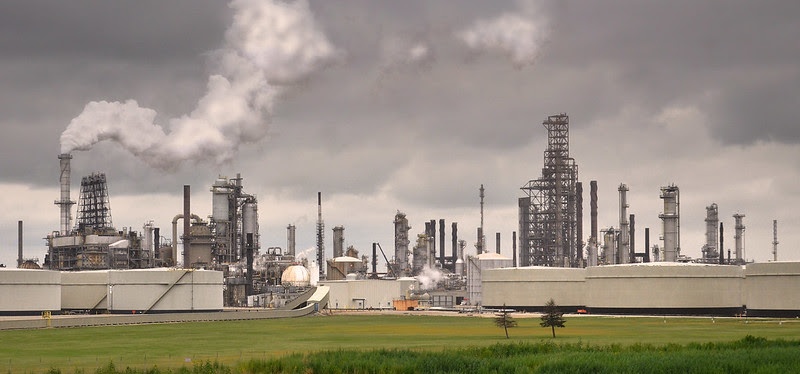By Frank Sherman
Recently, we took time to reflect on another eventful engagement season and to chart the strategic direction for the coming year.
Looking back at the 2019 engagement season and more than one-hundred climate engagements by ICCR members, we observe:
- In a notable exception, the electricity generation sector is at a decarbonization tipping point
driven by cheaper renewable energy, growing industrial and public demand, and
changing public opinion. Securitization laws, distributed energy resources (e.g.
rooftop solar) and community solar projects are growing in popularity. The “electrification
of everything” shows promise of demand growth, energy savings and environmental
sustainability. A growing number of utility companies (nine, according to NRDC) have followed Xcel’s lead by committing
to carbon-neutral electricity production by 2050 or sooner.
- In the face of regulatory rollbacks, natural gas production and distribution
companies are committing to voluntary methane leakage reduction targets to
salvage the ‘bridge-fuel’ story. With 6000 mid- and small-scale producers, the
majors are now advocating for a stronger regulatory regime! Investors have been
successful in tying support for meaningful regulation to reputational risk.
- As investors shifted from demanding scenario
assessments to Paris-compliant business plans, U.S. oil & gas companies continued to defend their
business-as-usual business model while their European counterparts broke rank. A
BP supported climate resolution obtained a 99+% vote while Shell agreed to set
GHG reduction targets for their products as well as their operations. In
contrast, CA100+ investors at Exxon Mobil recommended voting
against the Board after the company omitted their GHG reduction target
proposal.
- With noted exceptions (Wells Fargo and Goldman),
large financial companies are
starting to assess climate risk in their portfolios. Mid-cap companies were
slower to respond to our letter campaign, largely it seems, due to limited
capacity to conduct broad risk assessment. Investors will connect them with
tools they can use to do a straightforward climate footprint analysis.
- Political
spending and lobbying resolution votes, several of which emphasized climate
change, increased to 31%.
- Engagements calling for science based (GHG reduction) targets made slow progress in
contrast to the scientific community call for more urgent action.
Impacting the climate science and changing political landscape, 2018 was the wettest year on record while wildfires in California resulted in the first climate change bankruptcy of Pacific Gas and Electric. Global carbon emissions reached a record, and the U.S. power sector reversed its’ multi-year decline. The IPCC special report warned that countries’ pledges to reduce their emissions are not in line with limiting global warming to 1.5°C. Some are responding to the crisis – 80 countries are planning to increase their climate pledges ahead of schedule. The UK is the first member of the G7 to legislate net zero emissions, joining Finland and Costa Rica.
The 4th U.S. National
Climate Assessment Report starkly warns of risks to the U.S. economy while
the Trump administration’s environmental rollbacks are poised to increase GHG
emissions significantly. Public opinion is finally shifting with over 70% of
Americans saying climate change is a reality, with most believing human
activity is primarily responsible. Republican millennials support a carbon tax
7-to-1 with 85% stating that the Republican position on climate change is
hurting the party. The Midterm elections flipped the House of Representatives
and 7 state governorships to Democrats. Twenty-one states have now joined the U.S. Climate Alliance committed
to the Paris Climate Agreement. Four states (CA, WA, HI, NM) and Puerto Rico
have targeted 100% clean energy by 2050 or sooner, with nine additional states
(IL, MA, MI, MN, MS, NC, NY, PA, WI) proposing similar legislation. The Green
New Deal resolution changed the conversation on Capitol Hill and the Climate
Action Now Act put the House on record as supporting the Paris Accord.
Financial markets are not immune to this crisis. Munich Re
predicts climate change will price regions out of insurance. The broad acceptance
of the TCFD guidelines increases pressure on companies to improve disclosure.
Considering the broader investor landscape and NGO campaigns, the CA100+ global initiative focused on large emitters and led by large asset managers, pension funds, and sovereign funds. Some ICCR members participate in the CA100+ teams while others continue parallel engagements to reinforce the message. Still others are shifting focus to mid-cap companies. We believe that more coordination is needed to increase effectiveness.
Efforts to make methane emissions reduction targets the norm have been limited to the oil & gas majors and larger natural gas producers. The EPA’s proposed rollback of the New Source Performance Standards regulating oil and gas emissions will further erode the regulatory floor, especially as the EPA now proposes to deregulate methane. We look forward to publication of an EDF study on methane measurement and mitigation and Union of Concerned Scientists has formed a working group to study CCS.
Efforts towards a Just Transition have born fruit as investors and companies have a growing awareness of the unintended, negative consequences that decarbonization has on people. We made a good start with last October’s investor statement, representing $3.7 trillion in assets, and the CA100+ framework, which includes just transition questions; however, most companies lack the policies and practices to address these issues. Addressing the needs of employees, customers and local communities will accelerate transition rather than deter it.
Recalling Fr. Mike Crosby’s prophetic statement, “We are at a Kairos moment,” we look forward to developing with our allies a new strategy statement regarding future engagement of the oil & gas sector to help investors differentiate between fossil fuel companies making progress and those protecting business-as-usual models. Rollout will be stepwise with more guidance forthcoming. Finally, alongside our allies, we have reviewed a draft climate change principles which reflect an increased urgency and stepped up action.
Finally, let us turn to our 2020 engagement strategy. Given our progress in recent years within the electric utility sector, we expect to expand engagements further into mid-cap companies and push for net-zero carbon targets. We will collaborate with NGO’s and other partners to engage the state utility commissions and give input on the Green New Deal. ICCR is planning a multi-stakeholder Roundtable in December to discuss the challenges of decarbonization and promote a just transition.
Investors engaging the financial
sector are promoting a shift from simply assessing climate change risk to
their own operations to assessing the climate-related risk they facilitate
through their lending and underwriting. Coordinating with the Climate Safe
Lending Initiative, they plan to engage the top five U.S. banks and some
regional banks in 2020 on climate risk. Investors will ask banks to follow the
TCFD recommendations, complete a climate impact assessment, pledge no new
fossil fuel investments, and ultimately, decarbonize their portfolio (Banking
on Climate Change: Fossil Fuel Finance Report Card 2019). Planned for early
September, an investor brief and webinar will educate interested investors. As
well, we will ask smaller banks to join the Platform
Carbon Accounting Framework to calculate their carbon footprint.
Our methane work will continue to promote best practices in measurement and management to minimize methane leakage. We plan to engage companies on including their “non-operated assets” (i.e. joint ventures) in their methane targets, and step up engagement of distributors and retailers to source “sustainably produced” natural gas. At the same time, we recognize that natural gas can no longer be viewed as a “bridge fuel” to clean energy and agree that no new gas power plants can be justified given the climate crisis. On the other hand, replacing industrial and residential uses of natural gas remains a challenge.
It is clear that we recognize the increased urgency and need to step-up our demands. Within ICCR, we reflect this by the change to our Program name from Climate Change to Climate Crisis. This can no longer be considered a gradual change. We are in crisis mode so we need to respond differently!











